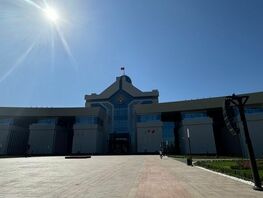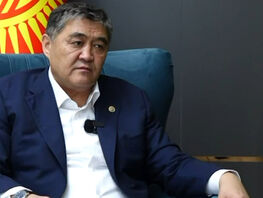Neonatal screening for phenylketonuria is now conducted in Kyrgyzstan. The press center of the Ministry of Health reported.
The National Center for Maternal and Child Welfare has begun conducting neonatal screening for the early diagnosis of congenital diseases — congenital hypothyroidism since 2019 in pilot mode. In 2023, consistent coverage of newborns with such screening took place throughout the country — 72,000 newborns were tested. It was detected in 370.
«Congenital hypothyroidism is one of the most common congenital diseases of the thyroid gland in children, which is based on complete or partial deficiency of its hormones, leading to a delay in the development of all organs and systems of the body,» the ministry reported.
Screening for phenylketonuria has now begun. This is a disease in which the activity of the enzyme that breaks down the amino acid phenylalanine is absent or reduced. «The latter is dangerous due to the accumulation of phenylalanine in the blood, which in turn can lead to neurological disorders, brain damage and mental retardation,» the Ministry of Health added.
In addition, diagnostic screening for retinopathy of premature infants has been introduced in pilot mode at the National Center for Maternal and Child Welfare. The draft «Protocol for the diagnosis, management and treatment of retinopathy of prematurity» has been prepared for approval.
Audiological screening of infants is also carried out. With the support of UNICEF, 22 devices were purchased for maternity hospitals and primary health care organizations in the regions of the Kyrgyz Republic.
Neonatal screening is a mass examination of newborn children for hereditary diseases. Such screening is aimed at early detection, timely treatment and prevention of the development of severe clinical consequences of hereditary diseases. In the USA, newborns are screened for 50 diseases, and in Russia — for 36.






